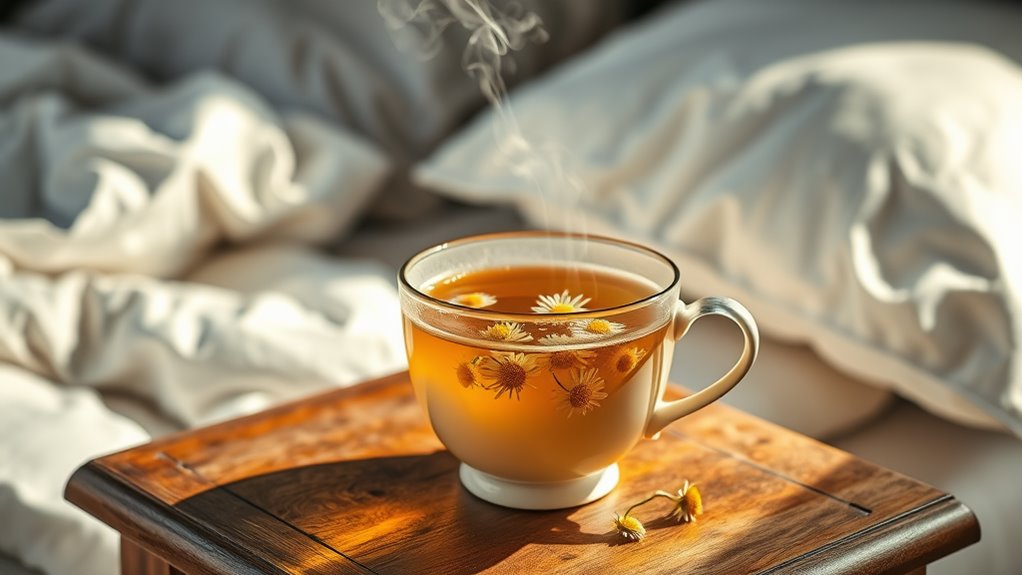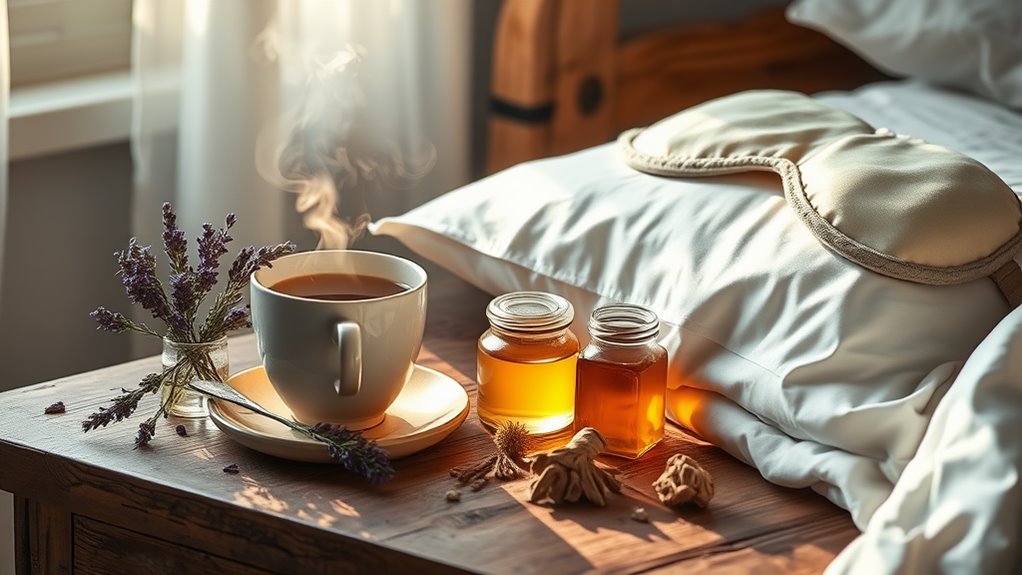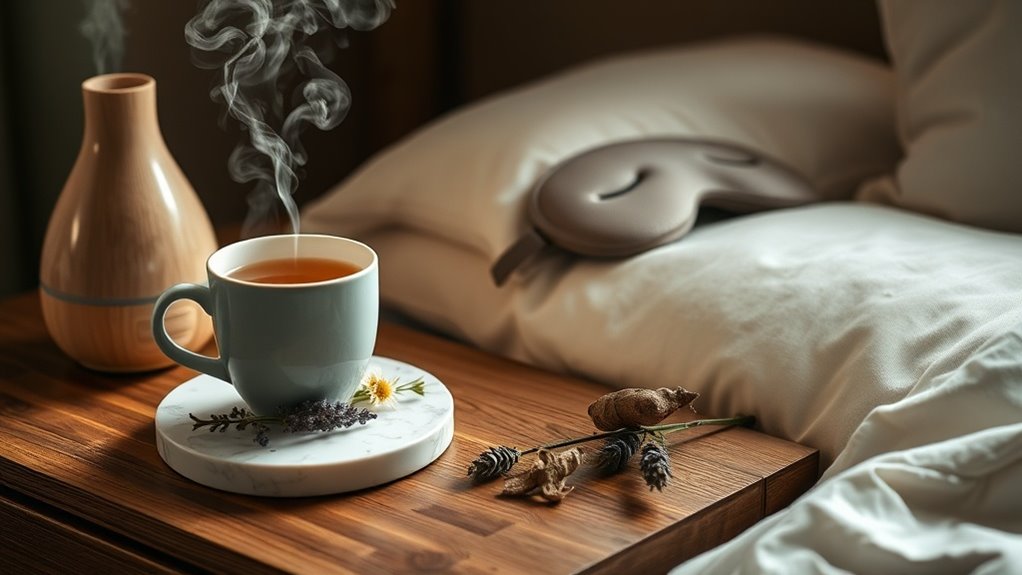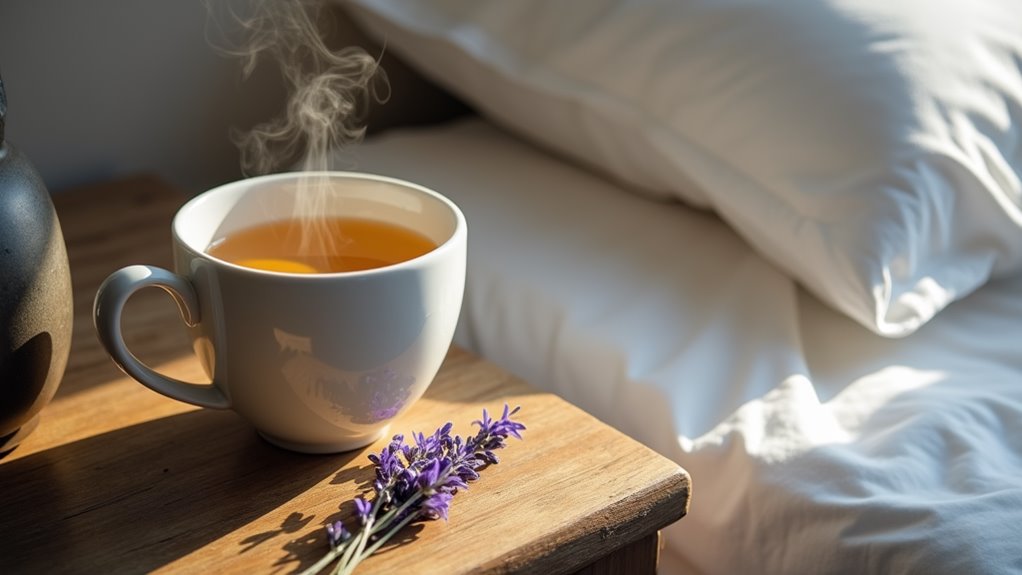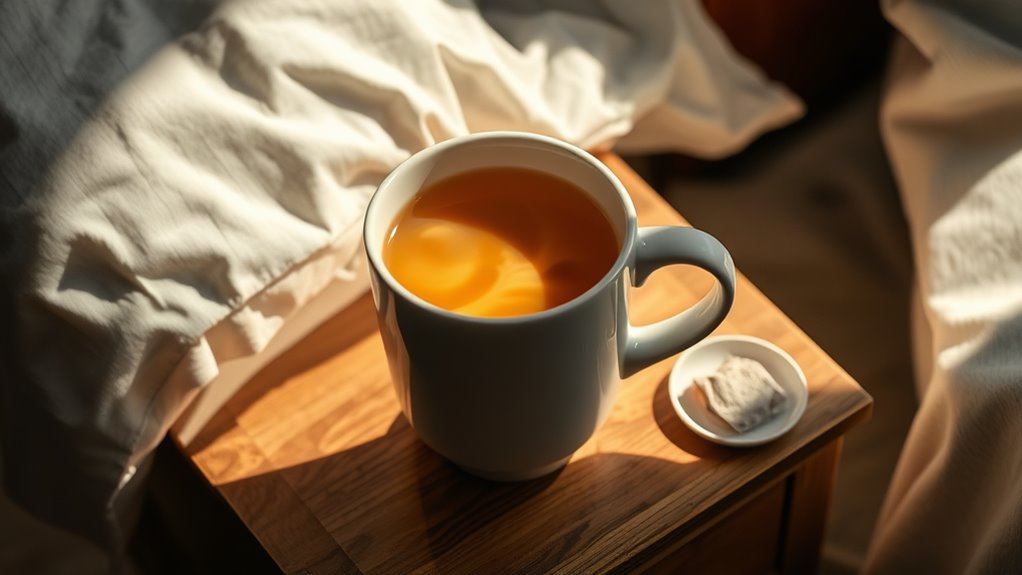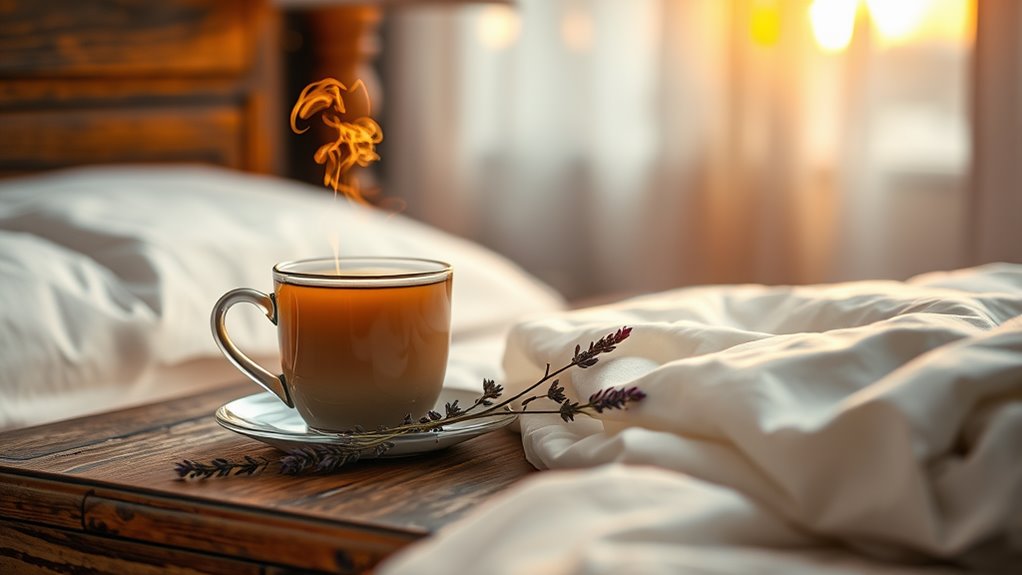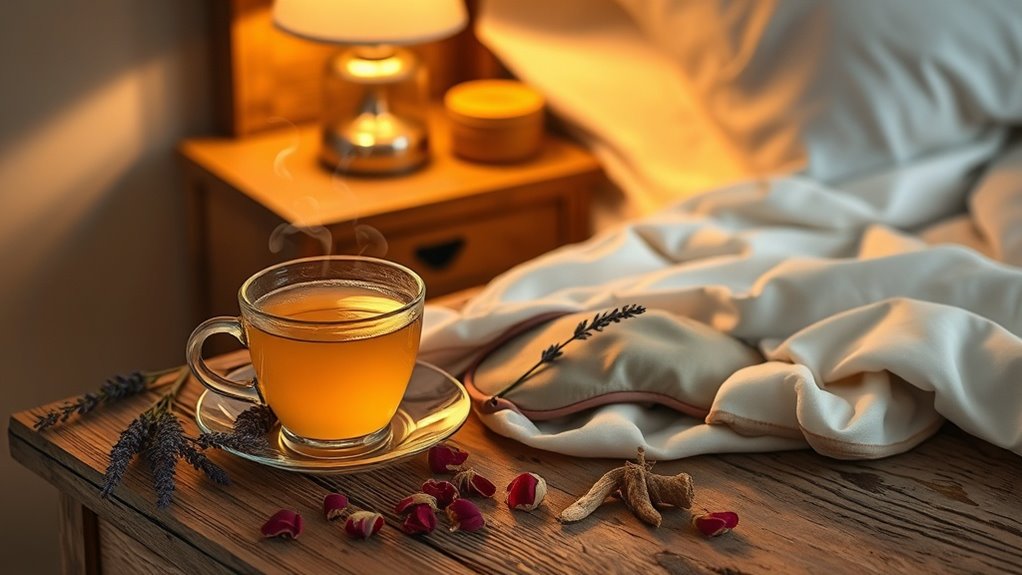This Tea Helped Me Fall Asleep in Minutes
You’ll find deep, restful sleep with a precisely brewed blend of valerian root, chamomile, and passionflower tea. These herbs work synergistically to boost your brain’s GABA and serotonin production, naturally inducing drowsiness within 30-45 minutes. Steep the blend for 10-15 minutes in 190°F water, avoiding milk to preserve the compounds’ effectiveness. For best results, pair this scientifically-proven combination with a cool 65-68°F bedroom and reduced blue light exposure before bed.
My Struggle With Sleepless Nights
What if struggling with sleepless nights didn’t have to be your nightly reality?
Studies show that chronic insomnia affects up to 30% of adults, disrupting essential sleep cycles and impairing daily function.
You might recognize the familiar pattern: lying awake, watching hours tick by, while your mind refuses to quiet down.
When searching for natural solutions, you’ve likely encountered various recommendations for the best tea for sleep.
Clinical research indicates that certain herbal compounds can effectively promote drowsiness by interacting with your brain’s sleep-wake cycle regulators, potentially offering relief from those restless nights that leave you exhausted and frustrated. Additionally, herbal blends like Ashwagandha with Brahmi and valerian root can enhance your sleep quality significantly.
The Science Behind Sleep-Inducing Herbs
Understanding how sleep-inducing herbs affect your brain chemistry reveals why certain teas can help combat insomnia. Sleep-promoting herbs like valerian root, chamomile, and passionflower interact with GABA receptors in your brain, increasing the production of this calming neurotransmitter. They also influence serotonin pathways, helping regulate your sleep-wake cycle.
Compounds like apigenin in chamomile bind to specific brain receptors that reduce anxiety and promote drowsiness. Valerian’s valerenic acid inhibits the breakdown of GABA, while passionflower’s flavonoids enhance GABA’s effects. These mechanisms explain why you’ll feel naturally sleepy after drinking these herbal teas. Additionally, natural remedies support the brain’s production of sleep-inducing compounds, further enhancing their effectiveness.
Finding the Perfect Bedtime Blend
Creating an effective sleep-promoting tea blend requires careful consideration of individual herbs’ synergistic effects. You’ll want to combine a primary sedative herb like valerian root or chamomile with secondary herbs that target specific sleep barriers. For anxiety, add passionflower or lemon balm. For muscle tension, incorporate skullcap or California poppy.
The ideal ratio is 2 parts primary herb to 1 part each secondary herb. Don’t exceed three herbs total, as this allows you to identify which components work best for your physiology. Steep your blend for 10-15 minutes in water at 190°F for maximum therapeutic benefit. Incorporating these herbal remedies into your routine can enhance the body’s natural sleep mechanisms, promoting a more restful night.
How to Brew for Maximum Benefits
To maximize your tea’s sleep-promoting properties, precise brewing techniques make a significant difference in the extraction of beneficial compounds.
Use water at 190°F (88°C) for chamomile and valerian root, while lavender requires slightly cooler temperatures at 185°F (85°C).
Steep for 5-7 minutes to achieve maximum release of flavonoids and terpenes.
Don’t add milk, as dairy proteins can bind to beneficial compounds, reducing their bioavailability.
Instead, enhance absorption by adding a drop of honey or lemon.
Consume your tea 30-45 minutes before bedtime to align with your body’s natural melatonin production cycle. Additionally, incorporating herbal teas for better health can further support relaxation and improve sleep quality.
Results and Lifestyle Changes
When you consistently follow a bedtime tea ritual, measurable improvements in sleep quality typically emerge within 2-3 weeks.
You’ll notice reduced sleep latency (time to fall asleep) and fewer nighttime awakenings.
Sleep tracking apps often show increased deep sleep percentages.
To maximize these benefits, you’ll need to make concurrent lifestyle adjustments.
Limit blue light exposure 2 hours before bed, maintain consistent sleep-wake cycles, and avoid caffeine after 2 PM.
Regular exercise, stress management, and proper bedroom temperature (65-68°F) work synergistically with sleep-promoting teas to optimize your circadian rhythm. Additionally, incorporating techniques like 4-7-8 breathing can further enhance relaxation and promote quicker sleep onset.

